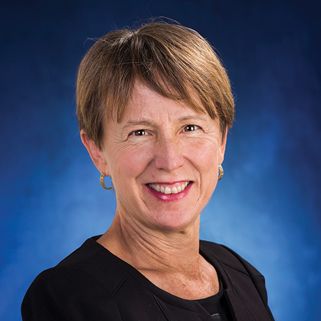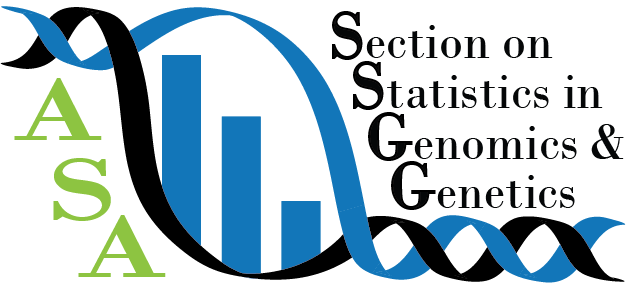STATGEN 2024
The American Statistical Association (ASA) Section on Statistics in Genomics and Genetics (SSGG) will host its first section conference on May 1-3, 2024 in Pittsburgh. It will be organized by ASA SSGG and the Department of Biostatistics at the University of Pittsburgh (Pitt), with three other supporting departments at Pitt, Carnegie Mellon University (CMU) and local industry. STATGEN 2024 is an in-person conference. There is not an option for virtual attendance.
We are excited to see you at STATGEN 2024! Register
The up-to-date schedule, list of attendees, and other conference details are available to registrants through the event management platform: STATGEN 2024
About Pittsburgh
The City of Pittsburgh has transformed from the former "world steel city" to become one of the most livable cities in the country, with major education, health care, biotechnology, finance, advanced manufacturing, and AI industries. Pittsburgh offers a rich blend of cultural and recreational attractions that will enhance the conference experience. CMU and Pitt are top-ranked universities with enjoyable and connected campuses within walking distance.
Event Details
Date: May 1-3, 2024
Format: In-person only
Venue: David Lawrence Hall, University of Pittsburgh
Banquet: May 2, 2024; University Club, University of Pittsburgh
Accommodations: Blocks of affordable hotel rooms are reserved on campus. See links below, which include group rates.
Schedule
May 1 |
May 2 |
May 3 |
|||
|
|
|
6:30 a.m. |
Hiking/jogging in Schenley Park |
|
|
|
7:30-8:30 a.m. |
Breakfast |
8-9 a.m. |
Breakfast |
8-9 a.m. |
Breakfast |
|
8:30-9 a.m. |
Opening |
|
|
|
|
|
9-10 a.m. |
Keynote 1 |
9-10 a.m. |
Keynote 2 |
9-10 a.m. |
Keynote 3 |
|
10-10:15 a.m. |
Break |
10-10:15 a.m. |
Break |
10-10:15 a.m. |
Break |
|
10:15 a.m.-noon |
Session 1 |
10:15 a.m.-12 p.m. |
Session 3 |
10:15 a.m.-noon |
Session 6 |
|
Noon-1:30 p.m. |
Lunch break |
Noon-1:30 p.m. |
Lunch break |
|
|
|
1:30-3:15 p.m. |
Session 2 |
1:30-3:15 p.m. |
Session 4 |
|
|
|
3:15-3:30 p.m. |
Break |
3:15-3:30 p.m. |
Break |
|
|
|
3:30-5:15 p.m. |
Poster session |
3:30-5:15 p.m. |
Session 5 |
|
|
| 6 p.m. | Banquet |
- STATGEN 2024 Accommodations
-
Blocks of affordable hotel rooms are reserved on campus for Tuesday, April 30-Friday, May 3.

The last day to book is Thursday, April 4. Individual reservation cancellations and changes will be accepted by the hotel, without charge to the guest, up to 6 p.m. the day before arrival.
- Wyndham Pittsburgh University Center (8 min)
Special group rate: $159 per night plus tax
Cancellation policy: free up to 4 p.m. the day before arrival. - Hilton Garden Inn Pittsburgh University Place (7 min)
Special group rate: $179 per night plus tax - Residence Inn by Marriott Pittsburgh Oakland/University Place (11 min)
Special group rate: $169 per night plus tax - Hampton Inn Pittsburgh University/Medical Center (16 min)
Special group rate: $149 per night plus tax - The Oaklander Hotel (6 min)
No group rate
- Wyndham Pittsburgh University Center (8 min)
- Registration Fees
-
Early bird registration (February 1-29, 2024)
ASA SSGG member: $280
ASA member: $300
Non-ASA member: $350
Student/postdoc: $100Regular registration (March 1-May 3)
ASA SSGG member: $330
ASA member: $350
Non-ASA member: $400
Student/postdoc: $150Banquet*: $25
*The three-course meal banquet will be available during registration on a first-come, first-served basis according to registration order, up to its capacity.
Invited Session Proposals
Abstract submissions have closed.
Important Dates
- Invited sessions announced – 12/15
- Topic-contributed session proposal open – 12/15
- Topic-contributed session proposal deadline – 1/15/2024
- Topic-contributed session proposals announced – 1/29
- Conference website registration open – 2/1
- Abstract portal open – 2/1
- Abstract deadline for invited and topic-contributed sessions – 2/15
- Contributed abstracts (for full consideration) deadline – 2/15
- Poster submission deadline – 3/15 or until capacity filled
Keynote Speakers
 Xihong Lin
Xihong Lin
Professor and Former Chair, Department of Biostatistics
Coordinating Director, Program in Quantitative Genomics, Harvard T. H. Chan School of Public Health
Professor, Department of Statistics, Faculty of Arts and Sciences, Harvard University
Associate Member, Broad Institute of MIT and Harvard
- Read more about Lin
-
Xihong Lin has been a leader in the development and application of scalable statistical and machine learning methods for the analysis of massive and complex genetic and genomic, epidemiological and health data. Some examples of her current research include analytic methods and applications for large scale whole genome sequencing studies, biobanks and electronic health records, techniques and tools for whole genome variant functional annotations, analysis of the interplay of genes and environment, multiple phenotype analysis, polygenic risk prediction and heritability estimation. Lin was elected to the National Academy of Medicine in 2018 and the National Academy of Sciences in 2023. She received the 2002 Mortimer Spiegelman Award from the American Public Health Association, the 2006 Committee of Presidents of Statistical Societies (COPSS) Presidents’ Award, the 2017 COPSS FN David Award, the 2008 Janet L. Norwood Award for Outstanding Achievement of a Woman in Statistics, the 2022 National Institute of Statistical Sciences Jerome Sacks Award for Outstanding Cross-Disciplinary Research, and the 2022 Marvin Zelen Leadership in Statistical Science Award.
 Rafael Irizarry
Rafael Irizarry
Professor of Applied Statistics, Harvard University and Dana-Farber Cancer Institute
Chair of the Department of Data Sciences, Dana-Farber Cancer Institute
Professor of Biostatistics, Harvard T.H. Chan School of Public Health
- Read more about Irizarry
-
Rafael Irizarry is a leading applied statistician generally interested in using data to help solve real-world problems. During his career he has worked on a variety of topics including musical sound signals, infectious diseases, circadian patterns in health, fetal health monitoring, estimating the effects of Hurricane María in Puerto Rico, and COVID19 vaccine effectiveness. His main focus during the last two decades has been in Genomics. Specifically, he has developed high impact methods for the analysis of data generated by emerging high-throughput genome profiling technologies. He was an early proponent of the Bioconductor Project, a leading open source and open development software project for the analysis of high-throughput genomic data. In 2009, the Committee of Presidents of Statistical Societies (COPSS) named him the Presidents’ Award winner, arguably the most prestigious award in statistics. In 2017 the members of Bioinformatics.org chose Irizarry as the laureate of the Benjamin Franklin Award in the Life Sciences. In 2020 he became an ISCB Fellow. He has also received the 2019 Research Parasite Award for outstanding contributions to the rigorous secondary analysis of data, the 2009 Mortimer Spiegelman Award which honors an outstanding public health statistician under age 40, the ASA Youden Award in Interlaboratory Testing, the 2004 American Statistical Association (ASA) Outstanding Statistical Application Award, and the 2001 American Statistical Association Noether Young Scholar Award for researcher younger than 35 years of age who has significant research accomplishments in nonparametric statistics.

Kathryn Roeder
UPMC Professor of Statistics and Life Sciences, Departments of Statistics & Data Science and Computational Biology, Carnegie Mellon University
- Read more about Roeder
-
Kathryn Roeder is a leader in the development of statistical methods for analyzing genetic and genomic data. Roeder’s research harnesses modern statistical methods such as high-dimensional inference, machine learning, nonparametric methods, and networks, and in turn she has brought problems from genetics and genomics into Statistics to motivate developments on these topics. Among many other topics, Roeder’s research group has developed tools for identifying genes associated with autism from de novo and inherited mutations; and, together with the Autism Sequencing Consortium, they have linked hundreds of genes with autism. A recent focus of her group is to develop tools for the analysis of single-cell multi-omic data, particularly CRISPR experiments, which enable scientists to precisely manipulate and perturb human genomes. Roeder has been honored with the COPSS Presidents’ Award for the outstanding statistician under age 40 and the Snedecor Award for outstanding work in statistical applications. In 2019 she was inducted into the National Academy of Sciences and in 2020 she was awarded the COPSS Distinguished Achievement Award and Lectureship.
 Gonçalo Abecasis
Gonçalo Abecasis
Vice President and Chief Genomics and Data Science Officer, Regeneron
Felix E. Moore Collegiate Professor of Biostatistics, University of Michigan School of Public Health (on-leave).
- Read more about Abecasis
-
Gonçalo Abecasis is a leading statistical genetics working on statistical and computational approaches for investigating the genetic underpinnings of human disease. Much of his research focused on the use of linkage disequilibrium in the mapping of complex disease susceptibility genes, and he provided some of the first detailed, large-scale descriptions of linkage disequilibrium in the genome. Abecasis has also been at the forefront of the development of efficient and scalable statistical algorithms for family-based and population-wide genetic studies. His research won him the 2013 Overton Prize from the International Society for Computational Biology and he was named a Pew Scholar by the Pew Charitable Trusts in 2005. In October 2014, he was awarded the Curt Stern Award in Human Genetics by the American Society of Human Genetics (jointly with Mark Daly).
Local Organizing Committee
- Wei Chen (Co-Chair; Department of Pediatrics, University of Pittsburgh)
- Jiebiao Wang (Co-Chair; Department of Biostatistics, University of Pittsburgh)
- William Townes (Department of Statistics and Data Science, Carnegie Mellon University)
- Chris McKennan (Department of Statistics, University of Pittsburgh)
- John Shaffer (Department of Human Genetics, University of Pittsburgh)
- Rebecca Deek (Department of Biostatistics, University of Pittsburgh)
- Shuguang Huang (Stat4Ward LLC)
Program Committee
- Audrey Hendricks (Chair; Department of Biomedical Informatics, University of Colorado Anschutz Medical Campus)
- George Tseng (Liaison Co-Chair; Department of Biostatistics, University of Pittsburgh)
- Lin Li (PharmaLex US Corporation)
Sponsors
- ASA SSGG

- Department of Biostatistics, University of Pittsburgh
- Department of Statistics, Carnegie Mellon University
- Department of Human Genetics, University of Pittsburgh
- Department of Statistics, University of Pittsburgh
- Department of Environmental and Occupational Health, University of Pittsburgh
- Stat4Ward LLC